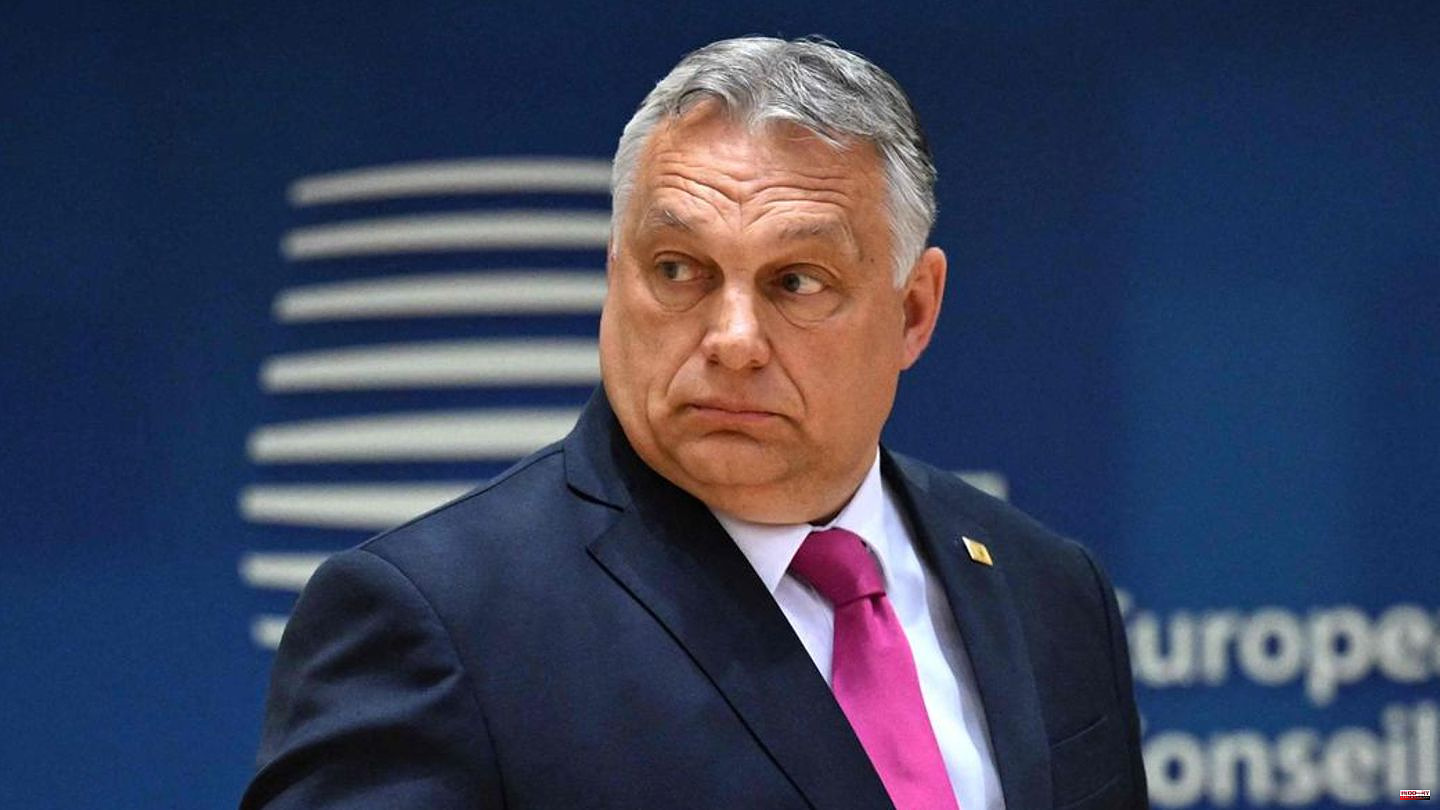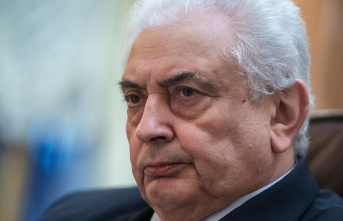Corruption, nepotism, deficiencies in the rule of law: these are the EU's allegations against Hungary. In an unprecedented move, the EU Commission has now decided that the country will be deprived of funds from Brussels. But the day after, the first cracks in the European united front began to appear. Poland has announced that it will not support the decision. "Poland will oppose with full force any action by the European institutions aimed at illegally depriving a member state of its funds - in this case especially Hungary," Prime Minister Mateusz Morawiecki said. However, there are signals from Budapest and Brussels that a solution to the dispute is being worked on.
Because of corruption and other violations of the rule of law in Hungary, the EU Commission proposed on Sunday to cut payments of around 7.5 billion euros from the EU budget to the country. The decision was unanimous. According to budget commissioner Johannes Hahn, all 26 EU commissioners and President Ursula von der Leyen agreed. According to Hahn, the money in Hungary is not sufficiently protected against misuse. It is the first time that the EU Commission is proposing this step due to deficiencies in the rule of law in an EU country.
But what to think of the apparent hardness of the Union? The fact is: The conflict between the EU and its member country on the eastern border has been smoldering for years. The EU Commission regularly accuses Hungary under Prime Minister Viktor Orban of undermining EU standards and fundamental values. The authority launched a number of infringement procedures and sued Hungary several times before the European Court of Justice - without, however, achieving a rethink in Budapest.
The July report on the state of the rule of law in the EU states reads accordingly devastatingly: There are shortcomings "in relation to lobbying, revolving door effects and party and election campaign financing"; independent mechanisms to uncover corruption were not sufficient; there is talk of an environment "where the risks of clientelism, favoritism and nepotism are not addressed in senior public administration".
As early as 2018, the European Parliament initiated proceedings under Article 7 of the EU treaties against Hungary because it saw threats to democracy, the rule of law and fundamental rights in the country. On Thursday, in a symbolic step, Hungarian MPs agreed to be a full-fledged democracy. The instrument to stop this development is the EU rule of law mechanism. Sanctions are to follow in the event that violations of the principles of the rule of law threaten to misuse EU funds. In April, the EU Commission initiated such proceedings against Hungary for the first time ever.
For a long time, Hungary was obstinate about the allegations. Until June, the Hungarian government did not even address the concerns of the EU Commission. But then the agency sent a letter to Hungary outlining how much money the country could lose. And that, it seems, may have caused Victor Orban to rethink. In any case, there are suddenly signs of a hitherto unknown willingness to talk on the part of the government. In September, a letter was even received in Brussels in which Budapest set out its reform commitments in writing.
Specifically, it was announced that a new authority would be set up to fight corruption. The handling of EU funds is also to be made more transparent and monitored more closely. The proportion of public tenders with only one bidder is to be reduced and cooperation with the EU anti-fraud authority Olaf is to be strengthened. Hungary intends to inform the EU Commission about the implementation of the measures by November 19. Budapest wants to bring the first laws into parliament this week.
But can you actually believe Orban's announcements? EU Budget Commissioner Hahn is cautiously optimistic. The announced measures are a paradigm shift, according to Hahn. "Hungary has actually moved." However, Hungarian anti-corruption activists warn that the Orban government could dupe Brussels. And warning voices are also coming from the European Parliament. "It is fatal that Viktor Orban can still avert these sanctions before the end of the year with a few sham reforms," said Green MP Daniel Freund. Moritz Körner (FDP) spoke of the fact that the federal states should not be fobbed off "with quickly decided paper tigers". "Orban has lost the right to a leap of faith."
In fact, it's still just announcements that Orban wants to use to pacify his European critics. The decisive factor will be the extent to which the European Union succeeds in maintaining its toughness against its recalcitrant member. In the end, the funding cuts can only be decided by a majority of the member states. At least 15 of the 27 governments in the EU would have to take a decision against Hungary. And these 15 would have to represent at least 65 percent of the population of the European Union. Orban would not be able to prevent such a decision with a veto – a majority decision would suffice.
But whether that will actually happen is questionable. Because the Hungarian President has a powerful lever. The EU is dependent on Hungary on a different political playing field: the sanctions that have been passed against Russia. If Hungary pulled out of the European solidarity bloc with Ukraine, it would be an unprecedented loss of face. A fact that Victor Orban is sure to take advantage of.












